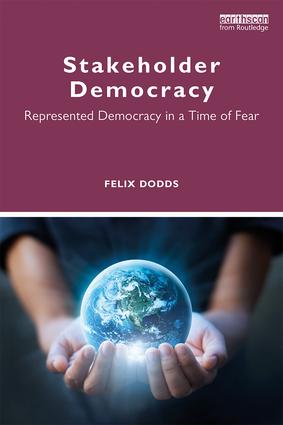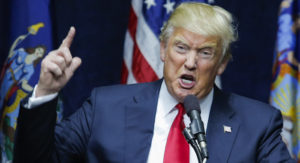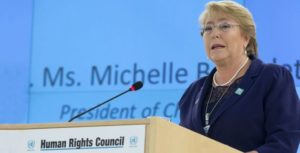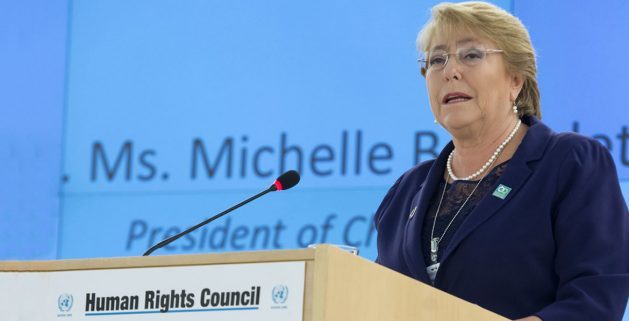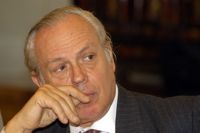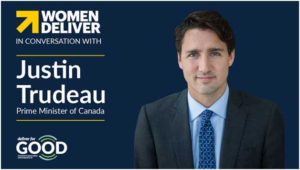
Civil Society, Development & Aid, Editors’ Choice, Featured, Gender, Global, Global Governance, Headlines, Human Rights, IPS UN: Inside the Glasshouse, TerraViva United Nations
In a special conversation, Katja Iversen, President/CEO of Women Deliver speaks with Justin Trudeau, Prime Minister of Canada, about Canada’s role in taking action for gender equality at home and abroad and our collective and individual responsibility to share power to build a gender equal world.
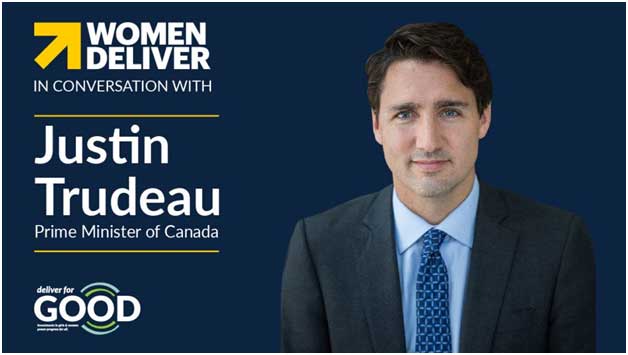
– It’s on all of us to make gender equality a reality – which means harnessing our collective power to build a gender equal world.
By empowering girls and women, realizing sexual and reproductive health and rights, tackling gender-based violence, and confronting the combinations of sexism, misogyny, racism, and colonialism, we can take steps towards true gender equality.
Coming off the heels of the Women Deliver 2019 Conference in Vancouver, we both explore the need to use – and share – power to deliver transformative change for girls and women.
Katja Iversen: At the Women Deliver 2019 Conference we focused on power, and how it can drive – or hinder – progress and change for girls and women, and therefore for all. How will you use your power?
Justin Trudeau: Power is a privilege and a responsibility. Ultimately, the best thing you can do with power is share it. As we saw at Women Deliver, grassroots advocates and activists are creating change on the ground. Young people, like Natasha Wang Mwansa, are not just the leaders of tomorrow, but the leaders of today.
We need to amplify the work they’re doing, pass them the microphone, and make sure there’s a seat at the table for people of diverse identities and perspectives.
Katja Iversen: In the lead up to and during the Women Deliver 2019 Conference, we have seen unprecedented energy and enthusiasm for advancing gender equality. How do we take that energy and commitment and turn it into action? From world leaders and business leaders to advocates and influencers, what is your call to action to keep up the momentum?
Justin Trudeau: At Women Deliver, we announced new steps forward on everything from funding for women’s health and women’s organizations, to support for women entrepreneurs and housing commitments that will benefit women.
We announced that Canada will increase our investment to $1.4 billion to support women and girls’ health globally, positioning us as a leading donor worldwide on comprehensive sexual and reproductive health rights. $700 million of this annual investment is dedicated to sexual and reproductive health rights.
We’re focusing on the most neglected areas of this field. This is a game changer. We welcome other leaders to join us.
Globally, and here at home, we are seeing attacks on women’s rights, whether it’s undermining a woman’s fundamental right to choose, or violence against Indigenous women and girls. We can’t take our foot off the pedal, not even for a moment.
There’s simply too much at stake. We all need to work together to move forward, and to build more sustainable, more inclusive movements. It’s on all of us to make gender equality a reality.
Katja Iversen: Over the last several years we have heard more world leaders and private sector executives make public statements about the importance of gender equality. This is certainly critical, commendable, and encouraging! But we also need to see these leaders “walk the talk” and move toward action.
This is something you have emphasized throughout your administration from appointing a gender equal cabinet to developing gender-responsive federal budgets – both of which are crucial for moving policies and programs to actual impact. What impact have these actions had in Canada and around the world and what will you do next to move the needle for girls and women?
Justin Trudeau: Our government has put gender equality at the heart of everything we do. This means grappling with interlocking issues like sexism and misogyny, racism and colonialism. These challenges are complex and layered.
We won’t always get it right, but we will always keep trying. We know that it’s time to put an end to violence against all women and transgender, non-binary, and two spirit people, which is why we launched the first ever national strategy on gender-based violence.
We know that advancing gender equality hinges on economic equality, too. We will continue to demand that women and men receive equal pay for work of equal value, that everyone has a safe place to live, and that parents can share equally in both the joys and the responsibilities of raising children.
That’s why we introduced historic proactive pay equity legislation, and created more flexible parental leave options. And it’s why we launched a housing strategy where a minimum of 25% specifically supports women, girls, and their families.
There is much more work to do, and Canada is in it for the long haul. We will keep fighting for gender equality and concrete change – not just when it is popular, but always.
Katja Iversen: From driving Canada’s first Feminist International Assistance Policy to establishing the first Gender Equality Advisory Council to a G7 Presidency, you have led the way for political leadership toward gender equality – with an emphasis on improving girls’ and women’s sexual and reproductive health and rights.
Why should world leaders like you prioritize gender equality and women’s right to decide on their own bodies on international agendas and what more do you plan to do? Please provide 1-2 specific examples.
Justin Trudeau: Women don’t have to imagine not being able to access healthcare when they need it. They don’t have to imagine being denied the right to choose what’s best for their health and their future. For far too many people, that’s their reality. And that’s unacceptable.
Governments need to stand with those on the frontlines as partners and as allies. Leaders should prioritize gender equality and women’s right over their own bodies because it makes our countries, our communities, our workplaces, our governments, and our families stronger.
When women are healthy, free to make decisions about their lives, and can equally participate in our economies, we all benefit.
Katja Iversen: From the hallways of power to the main stage of global convenings, what argument have you found to be most effective in converting more people – especially decision makers – to join you as gender equality champions?
Justin Trudeau: Gender equality is not only the right thing to do, but it is also the smart thing to do. It powers our economies, and changes our communities for the better. Everyone should be able to get behind that.
Katja Iversen: You have spoken about raising your sons with an awareness of power dynamics and to act as allies of girls and women. Part of this involves a shift in mindset, from the idea that boys and men are losing power to the idea that power is shared with girls and women, to the benefit of all.
Why is it so important to you and your wife – Mme Sophie Grégoire Trudeau, a Deliver for Good Influencer – to raise your sons as young feminists, and how have you encouraged them to be effective and supportive allies for gender equality?
Justin Trudeau: Sophie and I want to help our kids grow up to be strong allies and empathetic adults, who walk through the world with openness, compassion, and a commitment to justice. That’s why raising our kids as feminists is such a priority for us.
We want our daughter, Ella-Grace, to have the same opportunities as her brothers, Hadrien and Xavier. And we want our sons to escape the pressure to be ‘a particular kind of masculine’ that can be damaging to men and to the people around them.
We want all three of them to be confident in being themselves, to stand up for what is right, and to do so with pride. We try to instill in our children the notion that everyone should be treated equally, and that there’s work left to do so that everyone shares the same rights and freedoms. We hope our children learn that they have a responsibility – and the power – to shape our world for the better.


